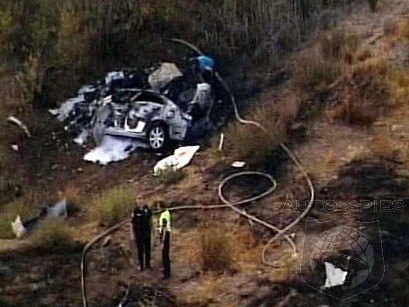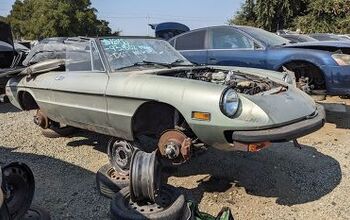Toyota Settles Saylor Crash Case
Toyota and the families of four people who died when dealership loaner Lexus ES crashed after a reported unintended acceleration event, have settled out of court reports Bloomberg. The crash gained national attention and helped spur on the media frenzy around unintended acceleration in Toyotas. Toyota CEO Akio Toyoda had previously apologized to the family of the driver, Mark Saylor, during congressional testimony. Needless to say, Toyota is not disclosing the terms of its settlement, saying only that
Through mutual respect and cooperation we were able to resolve this matter without the need for litigation.
Considering it was a Lexus dealer who had put non-standard mats in the Saylor car, and had previously been warned that it had a sticky accelerator, Toyota’s willingness to settle seems driven more by PR considerations than liability.
More by Edward Niedermeyer


































Comments
Join the conversation
This settles the case between Toyota and the Saylor family. But there are still a whole set of questions remaining. Accepting that a floormat jammed the accelerator. How did a skilled and experienced driver not turn the car off? How could he not get the car into neutral? How could he not firmly apply the brakes (intermittent application will be ineffective)? Any one of these actions probably would have averted the out-of-control accident. We don't have "settlement" of these questions.
Toyota has built defective vehicles for years, and it's well documented that they've been increasing since the late 90s. Unless you're a Toyota shill, there is no arguing that reality. Many people stack their floormats, especially in the winter when they use rubber ones. If Toyota was a properly run company, they would have designed them properly.
"Considering it was a Lexus dealer who had put non-standard mats in the Saylor car, and had previously been warned that it had a sticky accelerator, Toyota’s willingness to settle seems driven more by PR considerations than liability." I am confused by this statement. If I got to a franchise restaurant and something bad happens, I could still sell the franchise as a whole. In this case, Toyota didn't seem to make sure that its dealers knew what they were doing with the floor mats in the car. Toyota likely settled because the cost of the trials was going to be very expensive and they could lose. Settling with the family doesn't sound like a PR move to me. Most people seeing settlements assume that the defendant was wrong. While that may not be the case here, it was likely cost of the trial and uncertainty of the verdict that forced the settlement.
I don't think it is a good idea to turn off the engine as the power steering and power brakes would no longer work with the engine off. It would be good to put the transmission into neutral while applying the brakes.